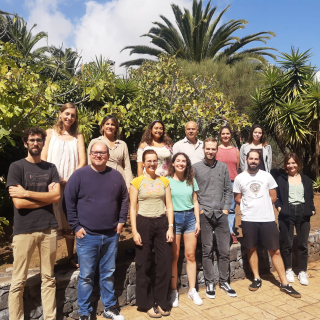Bibcode
Sánchez-Blázquez, P.; Karakas, A. I.; Gibson, B. K.; Marcolini, A.
Bibliographical reference
Monthly Notices of the Royal Astronomical Society, Volume 395, Issue 2, pp. 719-735.
Advertised on:
5
2009
Citations
46
Refereed citations
41
Description
We propose a new chemical evolution model aimed at explaining the
chemical properties of globular clusters (GCs) stars. Our model depends
upon the existence of (i) a peculiar pre-enrichment phase in the GC's
parent galaxy associated with very low-metallicity Type II supernovae
(SNe II) and (ii) localized inhomogeneous enrichment from a single Type
Ia supernova (SN Ia) and intermediate-mass (4-7Msolar)
asymptotic giant branch field stars. GC formation is then assumed to
take place within this chemically peculiar region. Thus, in our model
the first low-mass GC stars to form are those with peculiar abundances
(i.e. O-depleted and Na-enhanced), while `normal' stars (i.e. O-rich and
Na-depleted) are formed in a second stage when self-pollution from SNe
II occurs and the peculiar pollution from the previous phase is
dispersed. In this study, we focus on three different GCs: NGC 6752,
6205 (M 13) and 2808. We demonstrate that, within this framework, a
model can be constructed which is consistent with (i) the elemental
abundance anticorrelations, (ii) isotopic abundance patterns and (iii)
the extreme [O/Fe] values observed in NGC 2808 and M 13, without
violating the global constraints of approximately unimodal [Fe/H] and
C+N+O.
Related projects

Traces of Galaxy Formation: Stellar populations, Dynamics and Morphology
We are a large, diverse, and very active research group aiming to provide a comprehensive picture for the formation of galaxies in the Universe. Rooted in detailed stellar population analysis, we are constantly exploring and developing new tools and ideas to understand how galaxies came to be what we now observe.
Ignacio
Martín Navarro